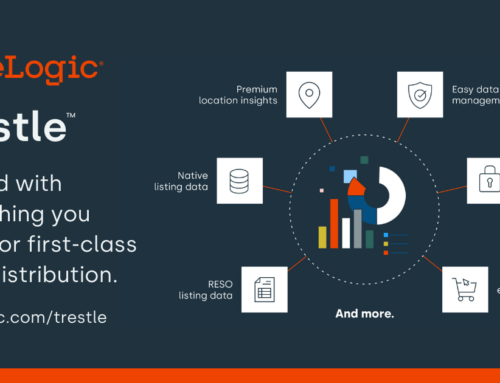 From the NAR Boston conference, one statistic keeps ringing in my head. As a confessed data junkie, I consume a lot of real estate research, so I’m pretty jaded. But when NAR’s research guru Jessica Lautz showed a slide at a press conference entitled “Median Age of Home Buyers,” I almost fell off my chair.
From the NAR Boston conference, one statistic keeps ringing in my head. As a confessed data junkie, I consume a lot of real estate research, so I’m pretty jaded. But when NAR’s research guru Jessica Lautz showed a slide at a press conference entitled “Median Age of Home Buyers,” I almost fell off my chair.
The median age of a repeat buyer in 1981 was 36 years old. Today, it is 55 years old. That is a stunning statistic.
After the press conference, I spoke briefly with Jessica. There’s a bunch of stuff going on here. Inventory is low, and people are staying in the same place longer as a result. Victor Lund is right – many people are “locked” in with a super low interest fixed rate mortgage and don’t want to move because mortgage rates are significantly higher.
But the most significant influence, I suggested, is longevity. This is a HUGE subject the real estate industry needs to start addressing. This number shows it is beginning to have an enormous impact on our business.
Longevity is going to influence everything about real estate: how we market to and communicate to repeat buyers, to how homes are built for them and where they are located.
The Aging of America
Life expectancy in the US is nearly twice what it was 100 years ago. It is approaching 80 years overall and already exceeds that for females (81.1 years). More than ten thousand baby boomers are retiring each day, according to Social Security data.
About a third of our current workforce is eligible to retire, including nearly half (48%) of all supervisors! The fact is people are working longer because they are living longer, and more than one in four (26%) don’t plan to retire until they are at least 70 years old.
That statistic is from a report by Motley Fool from an Insured Retirement Institute Survey that also found:
- Just 24% of Baby Boomers believe they’ll have enough savings to last throughout retirement. That’s down from 36% in 2012.
- Only 55% of Baby Boomers have any money saved for retirement.
- 59% of Baby Boomers cite Social Security as a major source of their retirement income.
- 65% of Baby Boomers are worried about future changes to Social Security.
- 26% of Baby Boomers don’t plan to retire until age 70 or later.
- Only 22% of Baby Boomers believe they are doing a good job of preparing financially for retirement.
- Only 27% of Baby Boomers believe they will have enough money for healthcare expenses.
The House Counts
The bottom line for me, in sorting through all of these numbers, is that one’s home is going to become more critical than ever in the future. It is going to be a crucial part of one’s financial planning, as many seniors will find themselves house rich and cash poor.
That’s not how it needs to turn out. Not if we realize this is where innovation needs to focus. How can real estate adapt to the realities of longevity and change this? Opportunity is ripe of multiple solutions to many vexing challenges that longevity will deliver to the real estate business and our economy.
It’s time to start looking at how to take advantage of what we can see and what is coming at us far more rapidly than we may realize.




